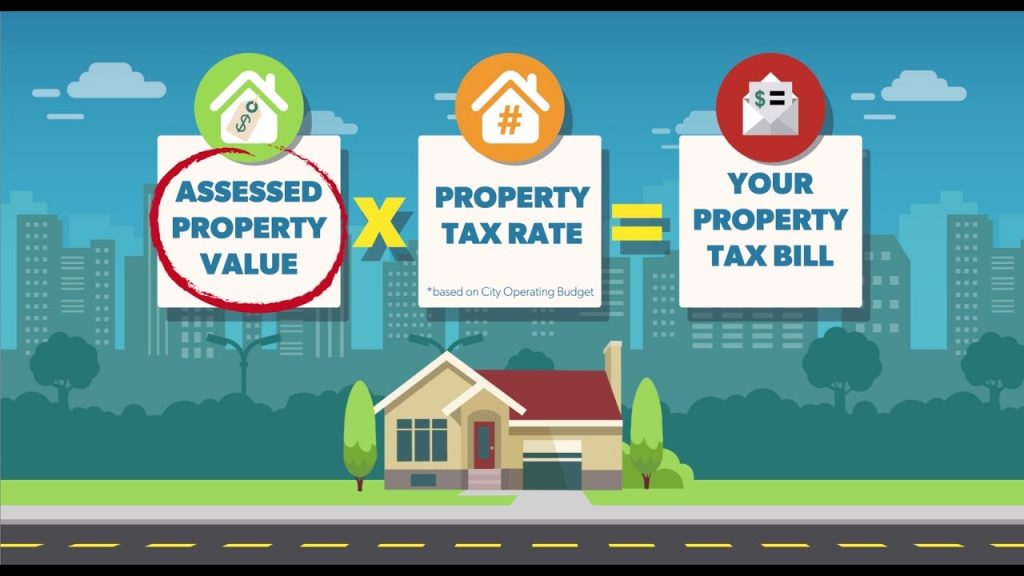If you’re a homeowner in San Antonio, Texas, you may be wondering what happens if you have unpaid property taxes and want to sell your home. Can you sell a house with unpaid property taxes in San Antonio, TX?
The short answer is yes, selling a house with unpaid property taxes in San Antonio is possible, but it can lead to serious consequences such as potential tax foreclosure and the loss of the property.
When you have unpaid property taxes, the county can place a lien on your property, which gives them the right to collect the unpaid taxes when the property is sold.
This means that when you sell your home, the unpaid taxes will be paid out of the proceeds of the sale before you receive any money. If the sale doesn’t generate enough money to cover the unpaid taxes, you’ll still be responsible for paying the remaining balance.
It’s essential to address unpaid property taxes before selling your home. If you’re unable to pay the unpaid taxes, you may be able to work out a payment plan with the county. Alternatively, you may be able to sell your home to a buyer who is willing to take on the unpaid taxes.
However, keep in mind that having unpaid property taxes can make it more challenging to sell your home, and you may need to lower your asking price to attract buyers.
Understanding Property Taxes in San Antonio, TX
If you own a property in San Antonio, TX, you are required to pay property taxes. Property taxes are imposed by local government authorities to fund public services like schools, roads, and public safety. The amount of property tax you owe is calculated based on the assessed value of your property.
In San Antonio, the assessed value of your property is determined by the Bexar County Appraisal District. They assess all property within their jurisdiction at full market value every year on January 1st. The assessed value of your property is used to calculate the amount of property tax you owe for the year.
Property taxes in San Antonio are due on January 31st of each year. If you fail to pay your property taxes on time, you will incur penalties and interest charges. If you continue to fail to pay your property taxes, the local government can place a tax lien on your property. This lien gives the government the right to sell your property to collect the unpaid taxes.
It is important to keep up with your property tax payments to avoid penalties and interest charges. If you are having difficulty paying your property taxes, you may be able to work out a payment plan with the local government.
Legal Implications of Selling a House With Unpaid Property Taxes
If you are planning to sell your house in San Antonio, TX, it is important to ensure that all your property taxes are paid up to date. If you have unpaid property taxes, it can have legal implications and may affect your ability to sell your house.
When you fail to pay property taxes, a tax lien is placed on your property. This means that the government has a legal claim to your property until the taxes are paid in full. If you try to sell your house with unpaid property taxes, the buyer may not be able to get a clear title to the property until the taxes are paid off. This can make it difficult to find a buyer for your property.
In Texas, property taxes are used to fund local government services such as schools, roads, and public safety. If you fail to pay your property taxes, the government may take legal action against you to collect the unpaid taxes. This can include foreclosure proceedings, which can result in the loss of your property.
It is important to note that even if you sell your house with unpaid property taxes, you are still responsible for paying the taxes. If the buyer is unable to pay the taxes, the responsibility falls back on you as the previous owner. This can result in legal complications and financial penalties.
To avoid legal complications and ensure a smooth sale of your property, it is important to pay all your property taxes in full and on time. If you are unable to pay your property taxes, you should reach out to the local government to discuss payment options and avoid any legal action.

Options for Homeowners With Unpaid Property Taxes in San Antonio
If you are a homeowner in San Antonio, TX, and have unpaid property taxes, you may be wondering what your options are. Fortunately, there are several options available to you, depending on your situation. In this section, we will discuss the three most common options for homeowners with unpaid property taxes.
Payment Plans and Assistance Programs
If you are struggling to pay your property taxes, you may be eligible for a payment plan or assistance program. The Bexar County Tax Assessor-Collector’s Office offers payment plans to homeowners who are unable to pay their property taxes in full. These plans allow you to pay your taxes in installments over a period of time, which can help make the payments more manageable.
In addition to payment plans, there are also several assistance programs available to homeowners in San Antonio. For example, the City of San Antonio offers a Property Tax Deferral Program for seniors and disabled homeowners who are unable to pay their property taxes. This program allows eligible homeowners to defer their property taxes until they sell their home or pass away.
Selling to a Cash Buyer in San Antonio
If you are unable to pay your property taxes and are facing foreclosure, you may want to consider selling your home to a cash buyer. Cash buyers are real estate investors who can buy your home quickly and for cash. This can be a good option if you need to sell your home quickly and do not have time to wait for a traditional sale.
However, it’s important to note that cash buyers may offer you less than market value for your home. You should also be aware that there are many scams in the cash buyer industry, so it’s important to do your research and work with a reputable buyer.

Additional Real Estate Advice:
- Working With A Realtor To Sell Your House in San Antonio
- Tips For Selling Your House For Cash Quickly
- How To Sell My House Fast For Cash in San Antonio
- The Benefits of Selling a House Fast For Cash in San Antonio
- Can I Sell My House To My Friend Without a Realtor
- How Much Does it Cost To Sell a House in Texas
- Can I Sell My Parents Home With a Power of Attorney
- Can You Sell a House With Mold in Texas
- Can You Sell Your Home With Code Violations in Texas
- Can I Sell My Home and Still Live it Rent-Free
- Can You Sell a House With a Mortgage
- Top Reasons To Sell Your House Fast
- Should I Sell My House Subject To
- How To Sell Your House Fast Without a Realtor
Working With a Real Estate Agent
If you are not in immediate danger of foreclosure and have time to sell your home, you may want to consider working with a real estate agent. A good agent can help you sell your home quickly and for a fair price. They can also help you navigate the process of selling a home with unpaid property taxes.
When choosing an agent, be sure to look for someone with experience selling homes in your area. You should also ask for references and check their online reviews to ensure they have a good reputation. Finally, make sure you understand their fees and commission structure before signing a contract.
The Selling Process With Unpaid Taxes
If you are planning to sell your house in San Antonio, TX, with unpaid property taxes, you need to be aware of the selling process. Selling a house with unpaid taxes can be a complicated process, but it is possible to do so legally. Here are some things you should know about the selling process with unpaid taxes.
Disclosing Tax Liens to Potential Buyers
When you sell a house with unpaid property taxes, you are required to disclose any tax liens to potential buyers. A tax lien is a legal claim against your property for unpaid taxes. If you have a tax lien on your property, you need to disclose it to potential buyers before they purchase your property.
Disclosing tax liens to potential buyers is important because it can affect the sale of your property. If a buyer discovers a tax lien after they have purchased your property, they may be able to take legal action against you. Disclosing tax liens upfront can help you avoid legal issues down the road.
Negotiating Tax Liens in the Sale
If you have unpaid property taxes, you may be able to negotiate with the tax collector to reduce the amount you owe. Negotiating with the tax collector can be a complicated process, but it is worth exploring if you want to sell your property.
One option is to enter into a payment plan with the tax collector. A payment plan allows you to pay off your unpaid taxes over time. Another option is to negotiate a reduction in the amount you owe. If you can demonstrate that you are unable to pay the full amount, the tax collector may be willing to reduce the amount you owe.
Negotiating tax liens in the sale can be a complex process. You may want to consider hiring a real estate attorney to help you navigate the process. A real estate attorney can help you negotiate with the tax collector and ensure that your interests are protected.

Impact on Sale Price and Timing
When selling a house with unpaid property taxes in San Antonio TX, it’s important to consider the impact it may have on the sale price and timing.
Firstly, unpaid property taxes can negatively impact the sale price of a house. Prospective buyers may be hesitant to purchase a property with delinquent taxes, as they may be responsible for paying them off after the sale. This can lead to lower offers and longer time on the market.
According to a study on tax delinquency and predatory tax buying in urban America, the sale of deeds on tax delinquent properties can have devastating consequences on the local level. This can lead to a decrease in property values and a decline in the overall economic health of the community.
Secondly, the timing of the sale can also be affected by unpaid property taxes. In San Antonio TX, the county may place a tax lien on the property if the taxes are not paid. This lien must be satisfied before the property can be sold, which can delay the sale process.
It’s important to note that the impact on sale price and timing may vary depending on the specific circumstances of the property and the local real estate market. It’s recommended to consult with a real estate professional and a tax advisor to determine the best course of action for selling a house with unpaid property taxes in San Antonio TX.
Closing the Sale and Resolving Unpaid Taxes
When selling a property in San Antonio TX, it is crucial to ensure that all property taxes are paid up to date. If you have unpaid property taxes, you cannot sell your house until you resolve the issue.
When you sell your house, the title company will check if there are any unpaid taxes or liens on the property. If there are any, they will need to be resolved before the sale can close.
One way to resolve unpaid property taxes is to pay them in full before the sale. You can contact the Bexar County Tax Assessor-Collector’s office to get an exact amount of unpaid taxes on your property. Once you have the amount, you can pay it directly to the tax office.
Another option is to enter into a payment plan with the tax office. This allows you to pay off the unpaid taxes in installments over time. However, it is important to note that you cannot sell your house until the payment plan is completed and all taxes are paid in full.
It is also possible to sell your house with unpaid property taxes, but it can be a complicated process. You will need to find a buyer who is willing to purchase the property despite the outstanding taxes. The buyer will need to be aware of the situation and willing to take on the responsibility of paying off the taxes.
In summary, resolving unpaid property taxes is essential when selling a house in San Antonio TX. You can pay them in full, enter into a payment plan, or find a buyer who is willing to take on the responsibility. Make sure to address the issue before closing the sale to avoid any complications.

FAQs About Can You Sell Your Property if You Owe Back Taxes
What are the consequences of selling a house with unpaid property taxes in Texas?
Selling a house with unpaid property taxes in Texas can lead to serious consequences.
The property may be subject to a tax foreclosure and sale process, potentially resulting in the loss of the home.
Additionally, the homeowner may incur severe penalties, interest, and tax liens, ultimately affecting the sale and ownership of the property (source: [Nolo].
How does the tax lien sale process work in Bexar County?
The tax lien sale process in Bexar County, San Antonio, Texas involves the sale of tax deed properties at auction on the first Tuesday of each month.
Properties with delinquent taxes are auctioned to the highest bidder, with the winning bidder receiving a tax deed to the property.
The sale is conducted by the County Clerk between the hours of 10:00 AM and 4:00 PM on the first Tuesday of every month, with the potential for properties to be sold to satisfy delinquent tax liabilities (source: [Bexar County FAQ].
Can someone legally take ownership of a property by paying the overdue taxes in Texas?
In Texas, paying overdue property taxes does not automatically confer ownership of the property to the individual making the payment.
While paying overdue taxes can lead to a tax lien on the property, it does not directly transfer ownership.
The process may result in a tax foreclosure and sale, but ownership is not automatically transferred solely by paying the overdue taxes (source: [TaxEase].
What options do homeowners have if they are unable to pay their property taxes in Texas?
Homeowners in Texas who are unable to pay their property taxes have several options available to address their situation.
These options may include making late payments, applying for a tax deferral, creating a payment plan, seeking a property tax loan, or exploring assistance programs offered by local authorities or organizations.
Additionally, homeowners can reach out to the tax collection office to inquire about any available local payment options (source: [Home Tax Solutions].
How long before unpaid property taxes lead to foreclosure in Texas?
In Texas, unpaid property taxes can lead to foreclosure if they remain delinquent after a certain period.
Generally, the foreclosure process can start at any time after the taxes become delinquent, and it can be completed in as little as 60 days if the taxes remain unpaid.
Homeowners should be aware of the potential for foreclosure if property taxes are not settled promptly (source: [TaxEase].
Is there a statute of limitations on collecting unpaid property taxes in Texas?
In Texas, there is no statute of limitations on collecting unpaid property taxes. The tax collector can pursue the collection of delinquent property taxes indefinitely, and there is no time limit restricting the efforts to collect these outstanding taxes (source: [Texas Statutes].
Do you need to sell your San Antonio home quickly, give us call at (210) 570-4984 or fill out the short online form.
Our team of savvy real estate problem-solvers is here to guide you through our fast home buying process and give you a fair offer on your home!